ANIMAL WELFARE
Free at last! The new life of rescued animals

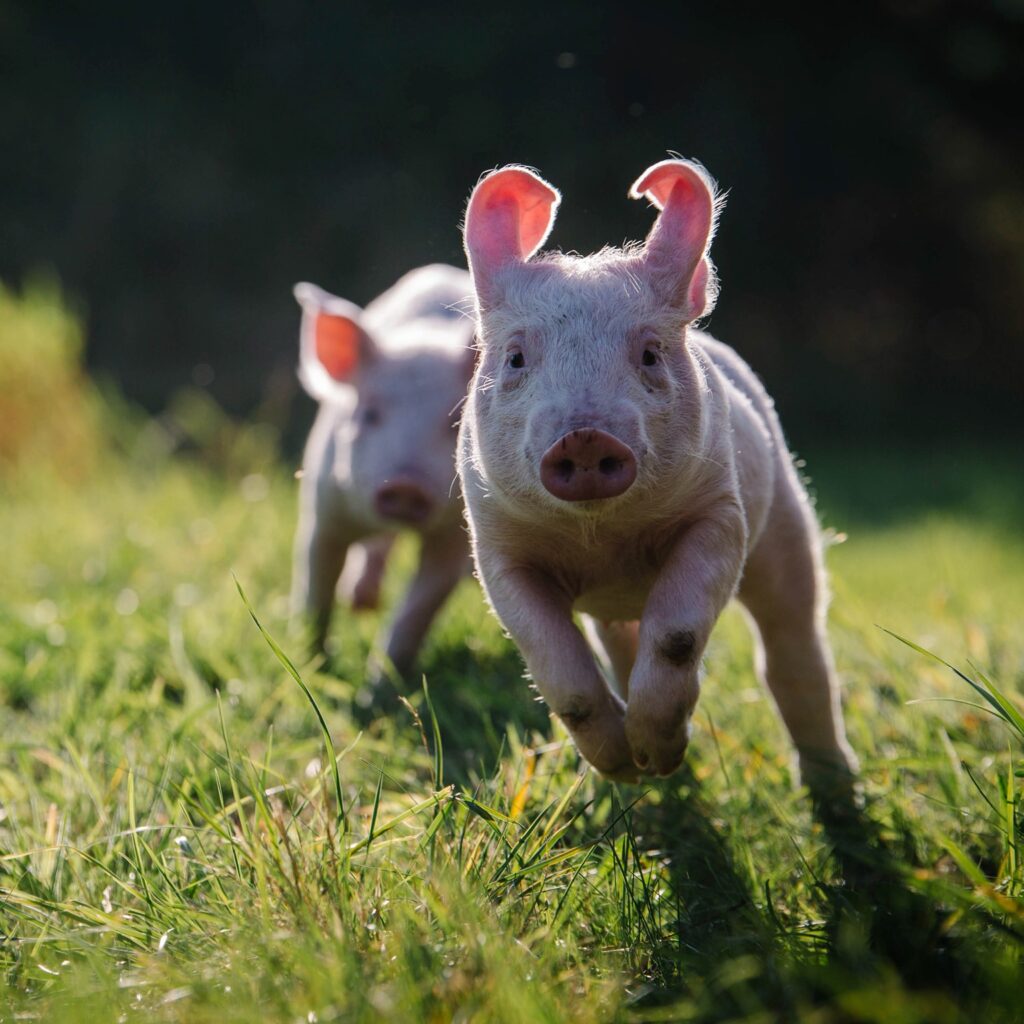
Protect, save and respect animals
Everyone who eats a plant-based diet is already protecting animals. Many choose a life without animal products because they reject the unfair treatment of our furry friends on this planet as well as animal rearing conditions especially factory farming. This is the calling of people who work in sanctuaries. People who are consistent in actively advocating for animals in need. We have zoomed in on the subject of sanctuaries in order to present you with some food for thought.
Animal welfare in Europe – darkness and light
Animal welfare has a long tradition dating back to ancient times. But although progress has also been made, there are still many areas where animals are kept in undignified conditions. Factory farming, illegal animal transport and unscrupulous wildlife trade are just some of the issues facing animal welfare in Europe today. However, even in the midst of these challenges, sanctuaries are a wonderful counter-example to combat these injustices and constitute a real ray of hope.
This is because these wonderful sanctuaries at last offer animals who once experienced unspeakable suffering peace, protection and the opportunity to live a life in dignity. Looked after by loving carers, they can still experience the joys of a carefree existence. Being stroked, exercising, having warm baths and playing all sorts of games are part of everyday life. Everything they were previously denied.
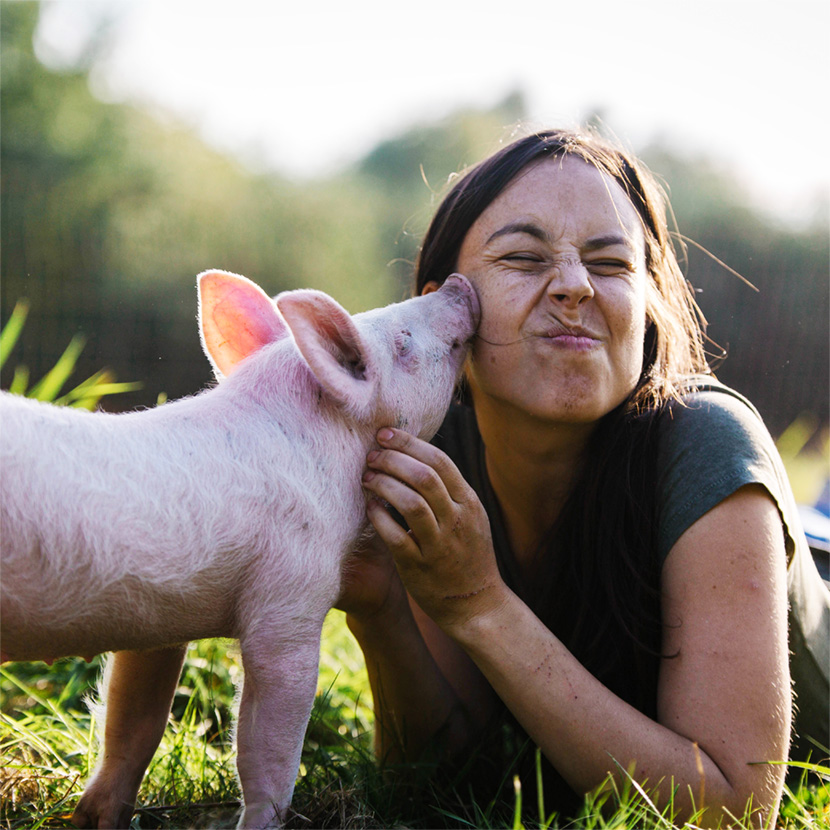
Thank goodness for sanctuaries!
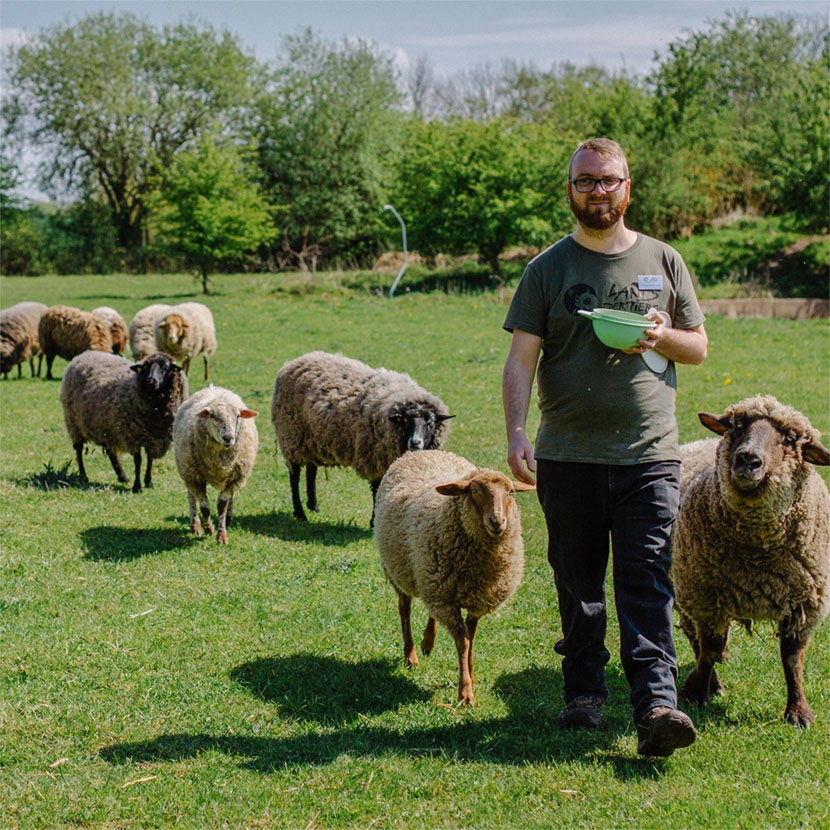
However, sanctuaries are not only a safe haven for animals, but also a source of inspiration and change. Those who visit learn compassion and respect on guided tours, information sessions and educational programmes, thereby finding out how they can make a positive contribution themselves.
Europe, characterised by its cultural diversity, offers a wide range of sanctuaries: from the Nordic pastures of Sweden to the coasts of Spain, there is an eclectic mix of farms, often specialising in particular species. Despite their differences, they are all united by a love of animals. The people who work there prove their dedication and commitment every day and realise the goal of giving many animals a better life.
In this way, the sanctuaries are like a shining light in an otherwise bleak world. They show us that empathy and care have the power to heal wounds and build a lasting connection with our fellow animal creatures. They remind us that every living being has a right to dignity and happiness and that it is never too late to make a difference.
Figures that inspire hope
Here are some key figures about sanctuaries in Europe:
- Over 500 sanctuaries across Europe offer animals a safe home and a second chance at a happy life (source: European Federation of Animal Sanctuaries).
- More than 50,000 rescued animals find refuge on these farms, including cows, pigs, chickens, horses and many others (source: World Animal Protection).
- Through awareness campaigns and educational programmes, sanctuaries reach over 2 million people each year to raise awareness of animal welfare and ethical choices (source: The Brooke).
- The sustainable and animal-friendly management of over 10,000 hectares of land designated for sanctuaries contributes to the conservation of biodiversity and the natural ecosystem (source: Farm Animal Sanctuary Network).
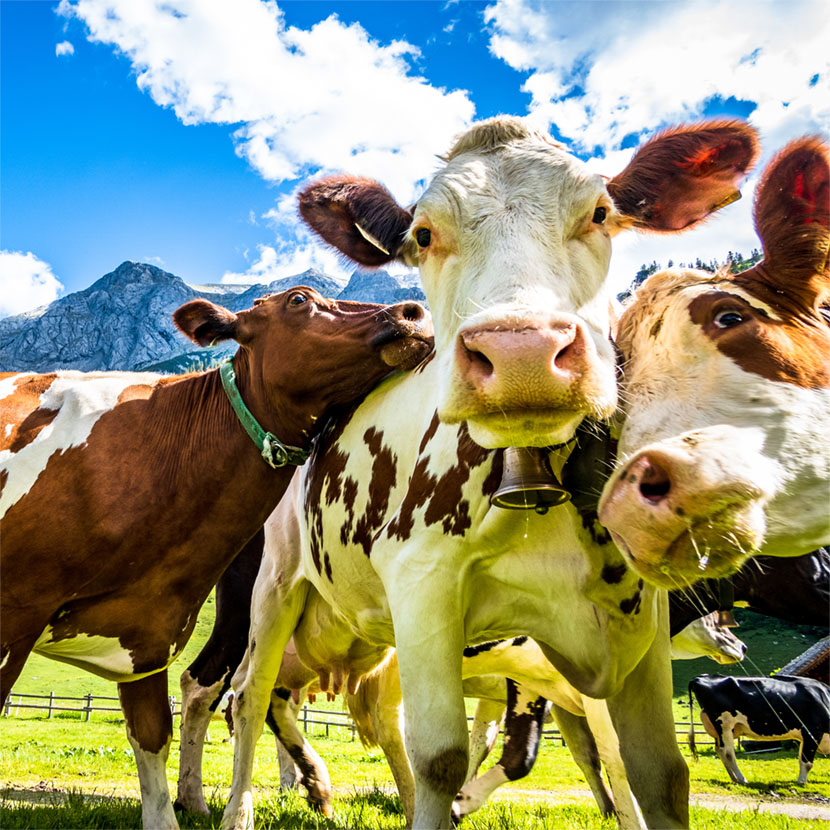
Land for animals
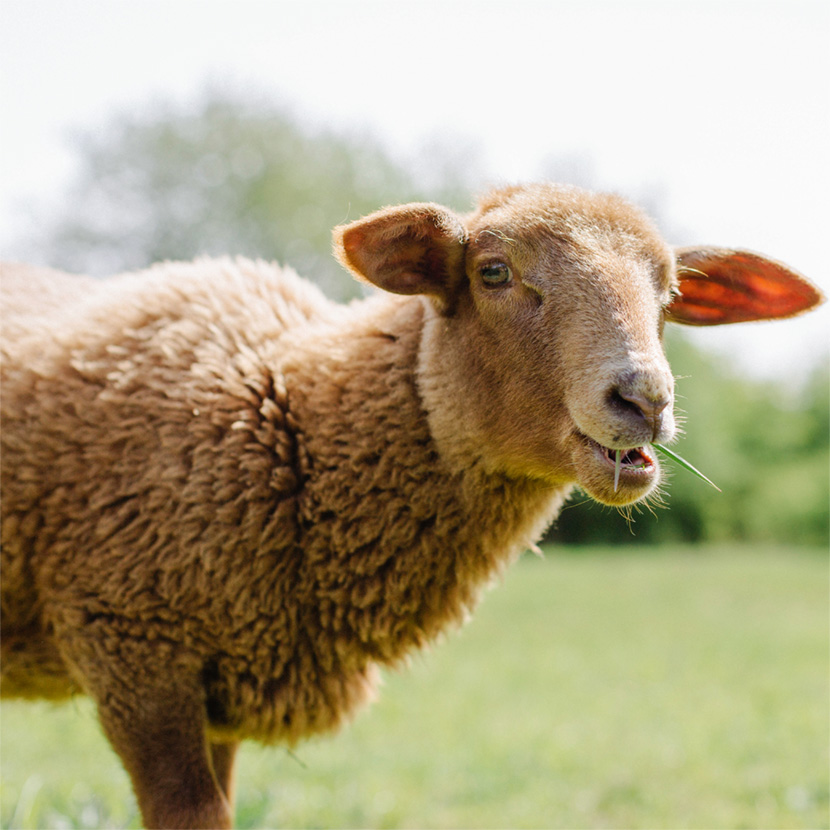
The Land of Animals lies between Hamburg and Berlin. Here the name says it all. On 14 hectares of land, everything is done to offer animals as natural a life as possible. The vegan community passionately and tenderly looks after Hanna, Felix, two of the lively pigs, Helge who is hibernating, the Hasenbein family, the Ostermann family and the many other inhabitants of this former National People’s Army (NVA) site.
Alone the 10 pigs live on 25,000 square metres. All the animals have the largest possible space, like Eddie and Lilli, the little mini pigs who move freely in the grounds. They walk past a small cage that comes from the piggery. Tanja, one of the energetic farm workers, looks at the cage and describes how a sow was lying in here, separated from her piglets. Unable to move properly. A fate that is still common today.
Tanja has also found herself here. She left an office job and found professional fulfilment in the Land of Animals. For the first time she experienced wanting to return to work after going on holiday, she says. Back to the animals and the vegan bubble, she adds with a grin.
Tanja likes to show what her chosen home tirelessly does and what they all stand for here. She walks past old bunker buildings from the NVA era where bit by bit the vastness and ample space that houses the different animals becomes apparent. The old military base has become a source of life where animals can simply be animals.
Still lucky
There’s not much going on with the pigs today, basically nothing at all. It’s lunchtime. All the bristly animals are taking a nap, and that’s a good thing. Sleepily, Felix slowly trudges out of the open sty. He checks to see if there might be a snack. After a short greeting, however, he prefers to walk towards Sule. Felix and his two brothers have escaped an accident involving an animal transporter. The initial scare ended well. The rest of the gang continues to take a nap.
The sheep are also still a bit lazy at midday. Almost all of them have lain down in the shade of an open bunker. Tanja calls out to a blind sheep standing a bit off to the side. No reaction. Tanja calls again and again nothing happens. Then another animal from the flock beckons and the connection is quickly re-established. There is always someone on hand here.
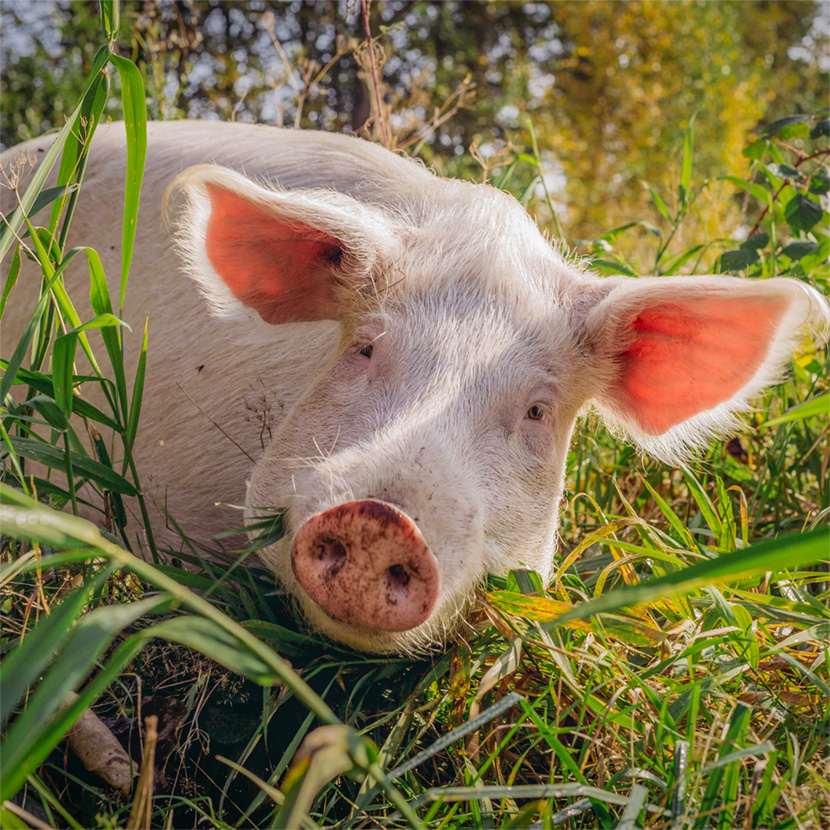
Feathered friends
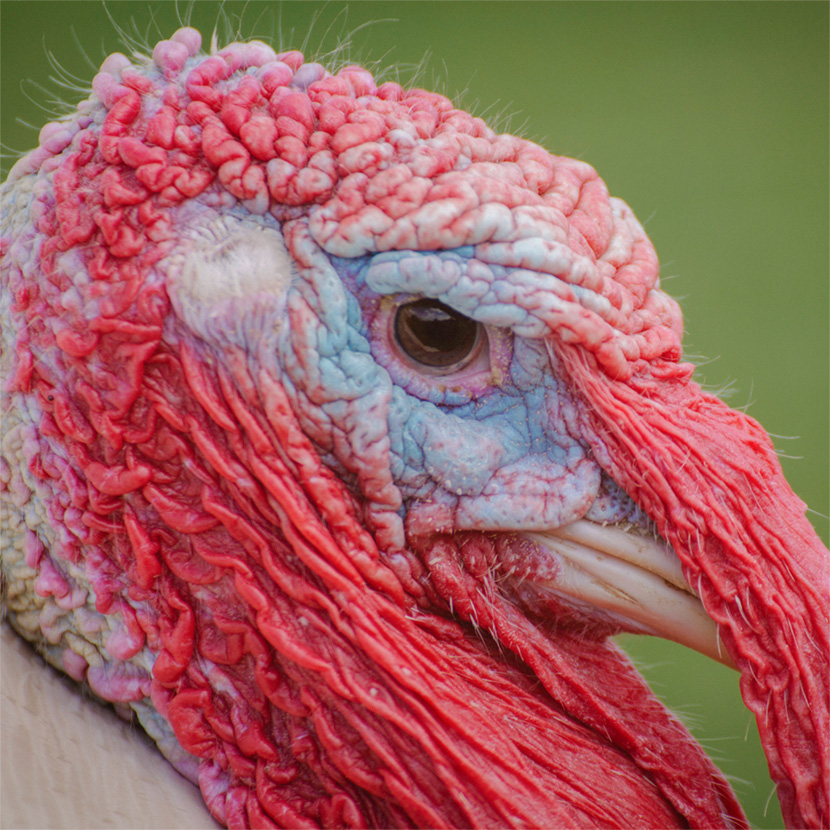
Music is playing for the chickens. Not all music works, you find out. The music is for protecting them against birds of prey. We learn that the chickens also simply like music. Again, we quickly notice the peacefulness that emanates from this place.
This becomes even clearer with the three chuckling turkeys that greet us in their realm next to the rabbits. The three parents have only been a few weeks out of quarantine. The exploitation has left many scars, and feathers are growing back in many places for the first time in their turkey lives. Although they have only recently seen the sky, were previously caged, endured pain and stress, they are curious creatures in need of TLC. They are so trusting, which we find amazing. Right next to us visitors, they close their eyes contentedly and doze, or they lovingly demand to be stroked.
Enlighten and thus inspire
“We don’t want to point fingers and lecture. We want to inform and let people make their own experience,” says Tanja. On the Land of the Animals, education is just as important as working with the animals themselves. “It would be best if that wasn’t needed.” But there is still a long way to go until that happens, which is why public relations work is so important.
The fact that everyone who lives here is vegan is simply the logical consequence of the conditions that industrial animal husbandry brings with it. The foundation that built the Land of the Animals intends to spread knowledge like this and to point out the avoidable suffering. This is also the motivation of the many helpers who live and work in the Land of the Animals out of conviction.
If you want to get an insight into the work in the Land of Animals yourself on a visit, you should check the opening hours beforehand, as they respect the animals‘ resting times.
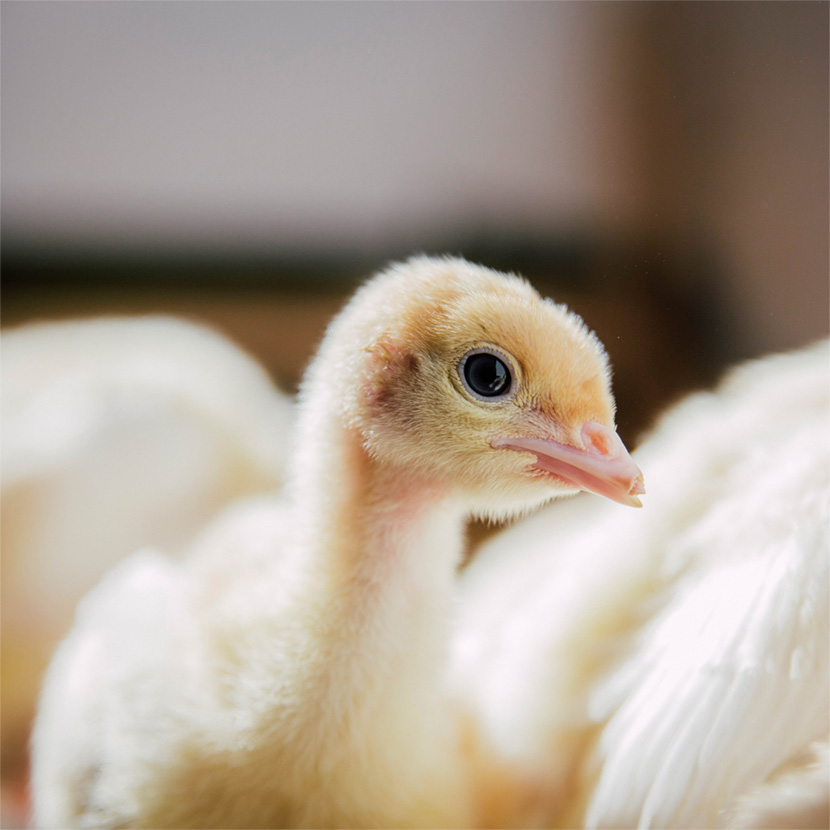
The idea of Kukus Garden
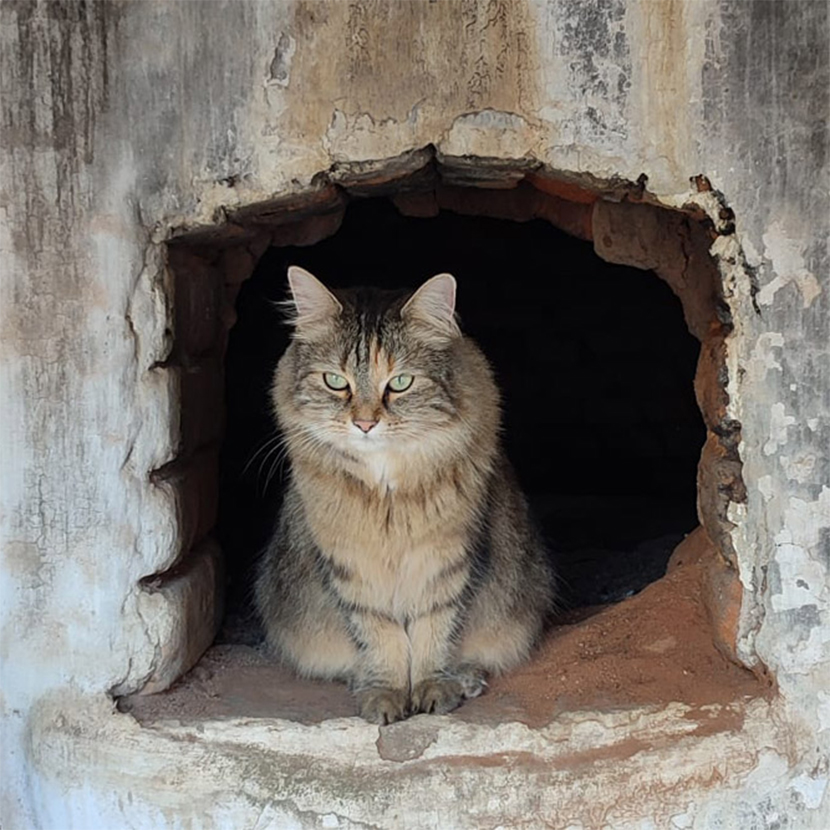
Two young people from Cologne together with their cat Kuku show just how much effort and courage it takes to build a life for animals.
Nina and Stevo have taken their savings and bought a remote piece of land in Portugal. Their goal: a life with animals and in harmony with nature. Without any language skills and with little idea of life in the countryside, and doing that abroad, the couple has been in the process of „realising their shared dream Kukus Garden“ since September 2022.
The old house had to be completely renovated. Water was only available from the well, and solar panels had to be installed to generate electricity. The seedlings they brought along for the garden didn’t really want to grow at first. But local help came to the rescue enabling the two vegans to put something healthy on their plates.
After establishing the initial neighbourhood contacts, the first animals also arrived quickly. In Portugal, as in many other southern countries, vegan life and animal welfare in the countryside are still somewhat rare and unusual. Nina and Stevo try to inspire others, also explaining the reasons that led them to a vegan life. With their friendly manner, they have no fear of contact and make people reflect on their choices.
So now the neighbour’s dogs are regularly walked and thus freed from the daily chains. During regular visits, even the pigs, who were given up, now receive small treats – something that would have been unimaginable for the Portuguese pig farmer at the start. Just by having the information and witnessing the pigs‘ strange but basically very natural behaviour, this farmer changed his way of thinking. He was not used to the little pot-bellied pigs greeting him and answering to their names. It is a beginning. A joyful one.
All this costs a lot of money. Nina and Stevo have to do without a lot of things – and they know exactly why and what for. They and their 30 animal roommates continue to realise the dream of freedom and harmony with each other.
10 years emergency horse shelter
On the first of July this year, the emergency horse shelter in Norderbrarup celebrates its 10th anniversary. Out of conviction and compassion, founder Petra Teegen has created something unique in Germany: Horses and ponies find a new home here without red tape. The first emergency horse shelter charity (Pferdeklappe e. V.) has made it its mission to help animals in need. There are often horses and ponies that are kept in dark, small rooms partly without contact to other animals.
The horse shelter has become a place of refuge for them, where they can get well and are given hope for a new life. Even if some of the animals arrive in pitiful conditions, Petra Teegen doesn’t bash the former owners. For her, it’s all about helping for the sake of helping.
After the animal is medically examined, a new, permanent home is found for it and the new owners are strictly checked. The standards are very high in order to give these freedom-loving animals a happy life. Thanks to Petra’s efforts, 2000 horses have found a happy ending in the last ten years, where before it looked like they would be slaughtered.
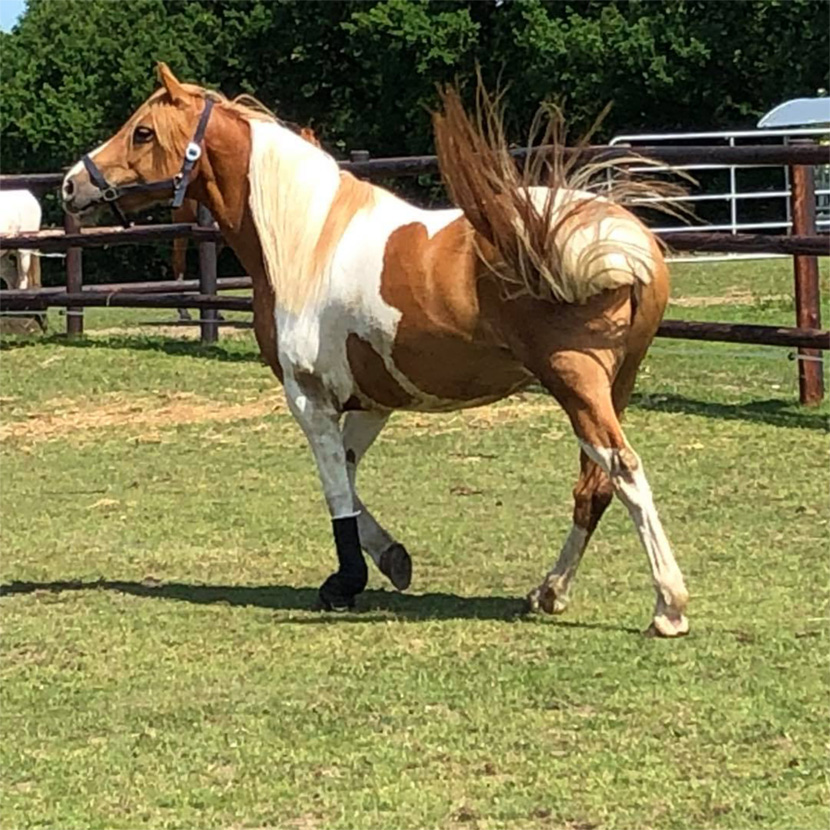
Enlighten, Enlighten and Enlighten
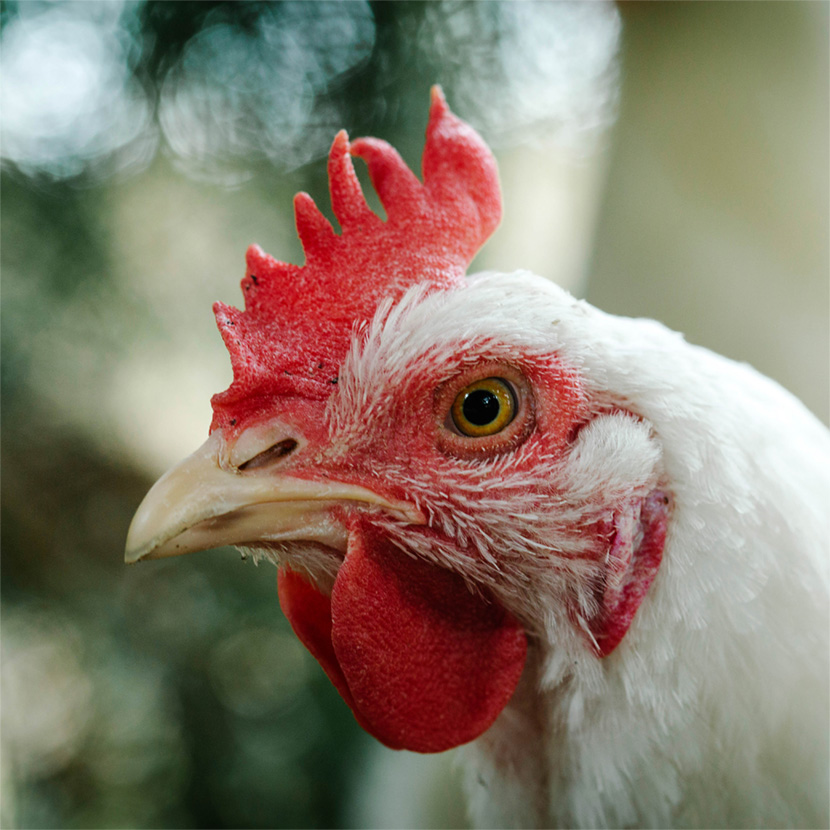
When all is said and done, we always reach the same conclusion when it comes to the topic of discussing sanctuaries: It would be best if there were no need for them. These places of ‘all is well again’. It would be good if there were no animals that vegetate far away from a natural existence and have never seen the sky. Yes, of course! But we are still a long way from living in such a world.
Until that day comes, sanctuaries will be needed as places for animal welfare and as information hubs where people can learn that animals have feelings, that they are physically and emotionally vulnerable — just like we are. Where people can learn about the waste of resources by the feed industry. Where we can think about a better life in harmony with nature. And where we can experience friendship with animals living freely or in appropriate surroundings for them. Don’t we all need such places?















